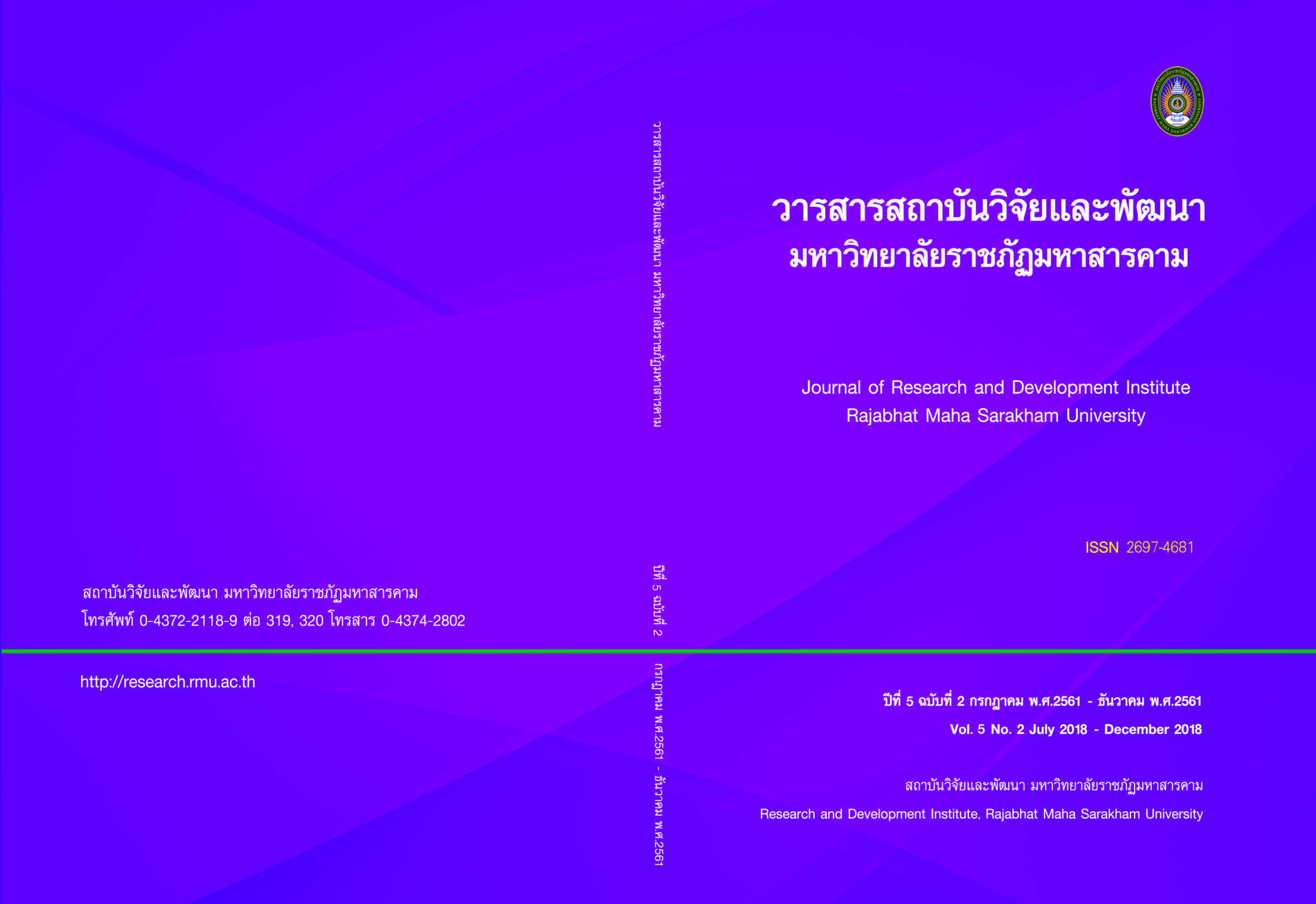Guidelines For Coaching Leadership Development Of School Under Khon Kaen Primary Education Service Area Office 1
Keywords:
Guidelines, Coaching Leadership, AdministratorAbstract
The research aimed to study the current condition, desired condition coaching leadership development of school under Khon Kaen primary education service area office 1 and Guidelines for developing coaching leadership development of school under Khon Kaen primary education service area office 1. The method used Descriptive Research. There are two periods of the research. The first period of the research was the quantitative procedure. The sample group were teachers and administrators of school under Khon Kaen primary education service area office 1 consisted of 346 people. Research instrument were a questionnaire. The data were analyzed by frequency, percentage, mean and standard deviation by using with modified priority need index (PNI Modified) to prioritize needs. The second period was conducting qualitative research by focus group discussion. The research findings were as follows : The current condition of coaching leadership development of school under Khon Kaen primary education service area office 1. The Current condition indicated middle level and desired condition indicated high level. Guidelines for developing coaching leadership development of school under Khon Kaen primary education service area office 1 consist of five elements and fifteen guidelines.
References
Chanisa Huadsri. (2013). Coaching leadership development program of basic education school administrator. Ph.D. of Education Thesis (Education Administration) Khonkaen University. [In Thai]
Chareomchai Phanlert. (2006). Development of Academic Mentors' Coaching Competency Enhancement Process Using Experiential Learning in School-based Training. Bangkok : Doctor of Education Thesis (Curriculum and Instruction), Chulalongkorn University. [In Thai]
Fielden, K. (2005). Chapter11 : Mindfulness An Essential Quality of integrated wisdom. In J. Countney, J. D. Haynes and D. Paradice (Eds), Inquiring Organzations : Moving from Knowledge Management to Wisdom (pp.211-228). Hershey, USA : Idea Group Inc.
Gottesman, B. (2000). Peer coaching for educator. Lanhan : The Scarecrow
Kanok -orn Somprach. (2016). Leadership and learning leadership for school administrators. 2nd edition., Khon Kaen : Klungnanawittaya.
Mink, O.G., Owen, K.Q. and Mink, B.P. (1993). Developing high-performance people : The art of coaching. Reading, Massachusetts : Addison-Wesley.
Office of the Education Council. (2009). Educational Reformation Proposals in the Second Decade (2009– 2018). [Online] http : //www.onec.go.th/index.php/book/ BookView/695 [1 December 2017]. [In Thai]
Subin Yurarach. (2011). “THE APPROACH OF THE SYNTHESIS OF NEEDS ASSESSMENT WORKS”. Journal of Education Naresuan University, 13 (2) : May-August 2011 : 31-54. [In Thai]
Suwimon Wongwanich. (2007). The Needs Assessment Research. Bangkok : Publisher of Chulalongkorn University. [In Thai] Tamane, Taro.(1973). Statistics: An Introductory Analysis. 3rd edition. Newyork : Harper and. Row Wannee Kaemkate. (2008). Behavioral Science Research Methodology. 2nd edition. Bangkok : Printing of Chulalongkorn University. [In Thai]
Whitmore, J. (2009). Coaching for Performance. 4th edition. London : Nicholas Brealey Publishing. Witkin, B. & Alshuld, J. (1995). Planning and Conducting Needs Assessments : A practical guide. Thousand Witkin, Belle Ruth. (1984). Assessing Needs in Educational and Social Programs. Josscybass Publishers. San Francisco. Washington London.
Downloads
Published
How to Cite
Issue
Section
License
Articles that are published are copyrighted by the authors of the articles







